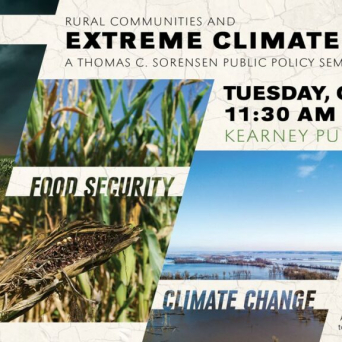Location: Kearney Public Library
2020 1st Ave
Kearney, NE 68847
Details: This is a brown bag lecture and discussion. Bring your own lunch and drinks. The event is free and open to the public and UNK community.
Lecture time: 11:30-1:00 PM
This forum will discuss opportunities and challenges facing rural communities adapting to climate-related extreme events. The forum will feature:
- Bob Dixson, former mayor of Greensburg, KS, will tell the story of the EF-5 tornado which devastated the town, and its rebuilding as a 100% wind energy powered city with the most LEED-certified buildings per capita in the nation.
- Historian David Vail from the University of Nebraska at Kearney will discuss the historical context of climate and food security in the Great Plains since the 1950s.
- Climate scientists Martha Shulski and Natalie Umphlett from the Nebraska State Climate Office and High Plains Regional Climate Center will provide an overview of their work assisting regional municipalities to plan for climate change.
Focus group discussion: 1:00 PM – 1:30 PM
Following the lecture, at 1 PM there will be a 30-minute volunteer focus group with climate scientists who would like to learn your ideas about how small municipalities can prepare for extreme climate events. Space is limited for the focus group.
Co-sponsoring partners:
- Kearney Public Library
- University of Nebraska at Kearney:
- University of Nebraska Public Policy Center
- University of Nebraska-Lincoln:
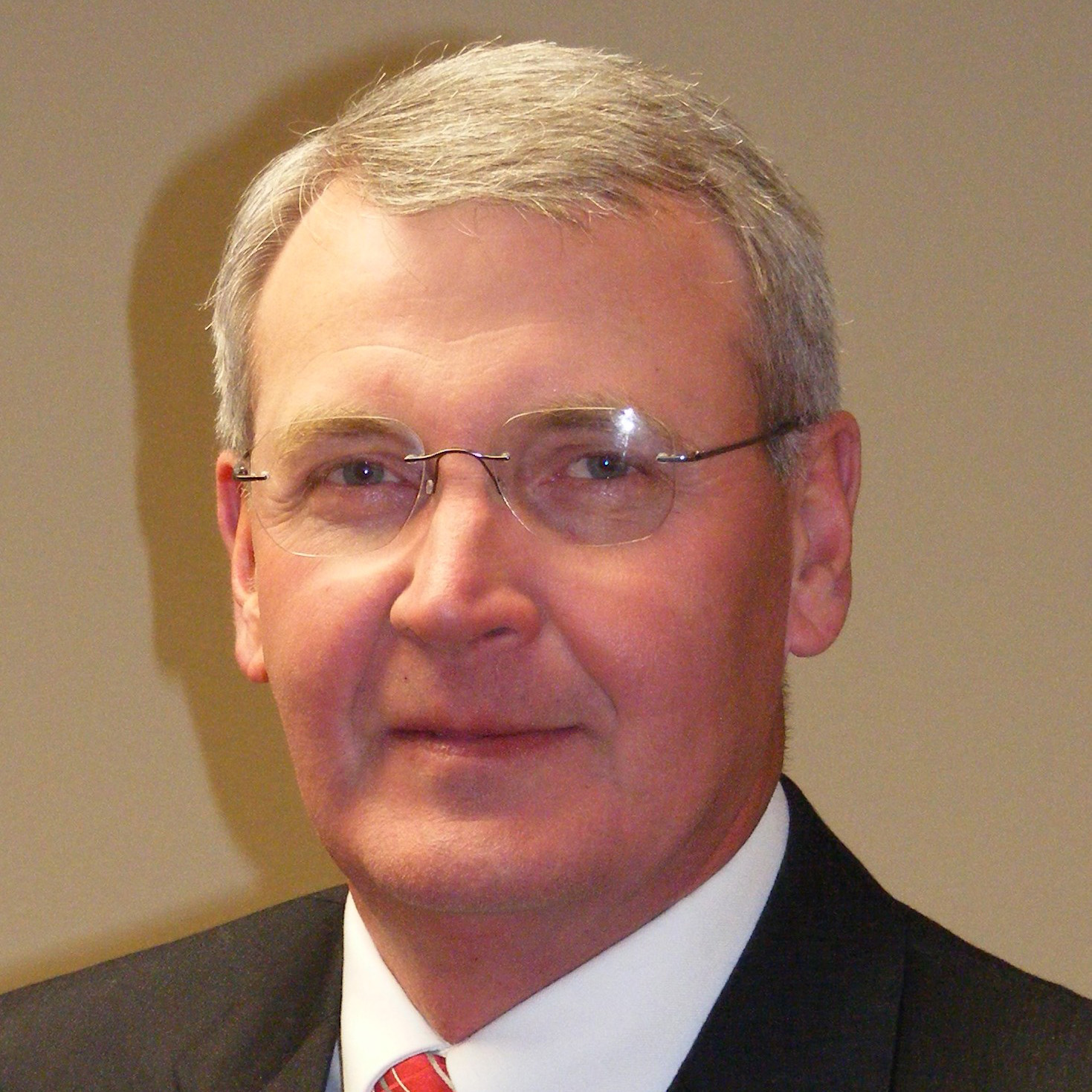 Former Mayor Bob Dixson is a native Kansan and he has been a resident of Greensburg since 1985. Dixson served as mayor of Greensburg from May 2008 to November 2018. He and the city council led the way in the process of rebuilding Greensburg following the May 4, 2007, EF5 tornado that destroyed 95% of the community. Sustainable building, renewable energy, and “green” technologies are the cornerstones of the recovery of Greensburg. Community involvement and public/private partnerships have been essential in the recovery efforts. Former Mayor Dixon has presented to groups around the world on post-disaster recovery and sustainability.
Former Mayor Bob Dixson is a native Kansan and he has been a resident of Greensburg since 1985. Dixson served as mayor of Greensburg from May 2008 to November 2018. He and the city council led the way in the process of rebuilding Greensburg following the May 4, 2007, EF5 tornado that destroyed 95% of the community. Sustainable building, renewable energy, and “green” technologies are the cornerstones of the recovery of Greensburg. Community involvement and public/private partnerships have been essential in the recovery efforts. Former Mayor Dixon has presented to groups around the world on post-disaster recovery and sustainability.
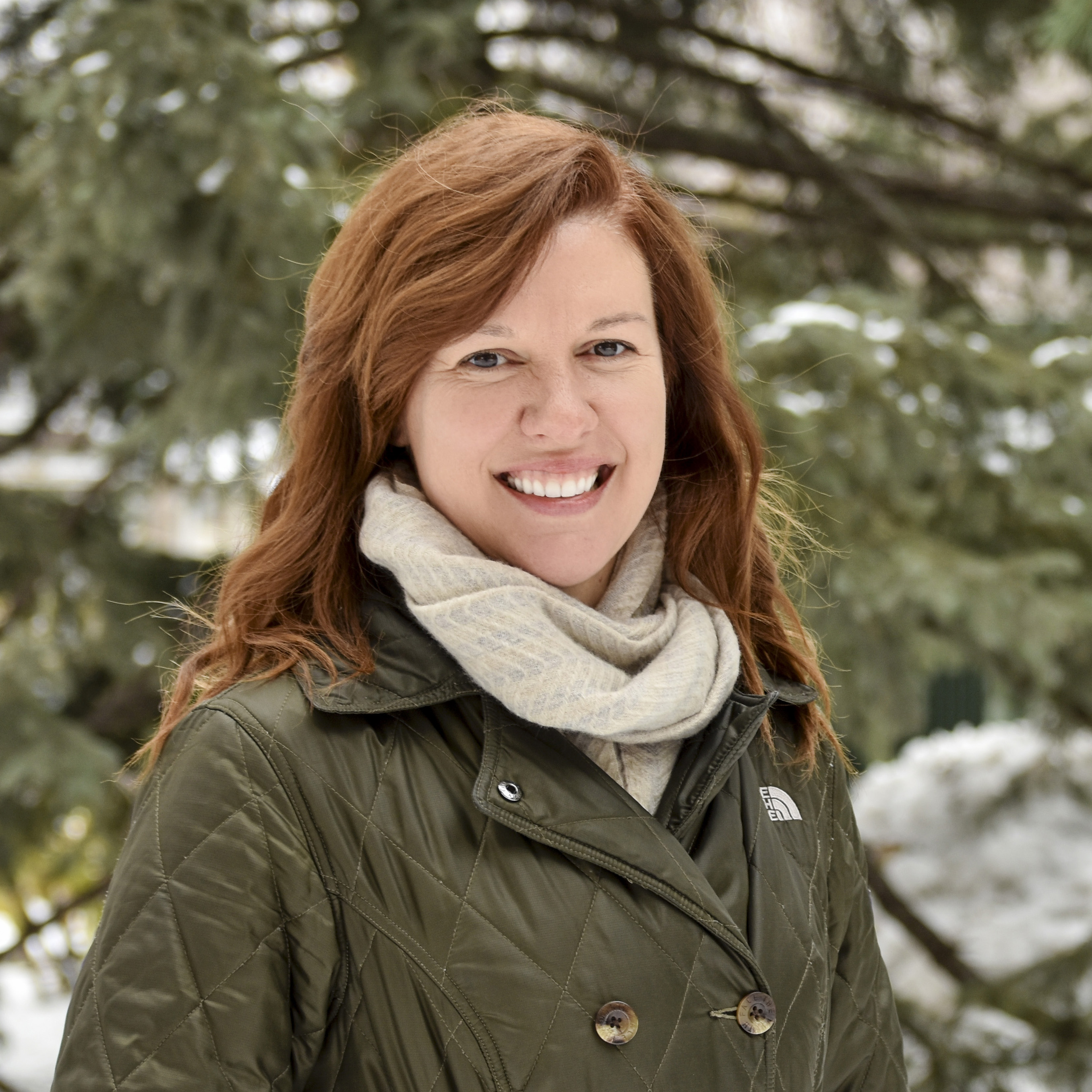 A native of Nebraska, Martha Shulski serves as the state climatologist and is an associate professor in the School of Natural Resources at the University of Nebraska-Lincoln. She directs the Nebraska State Climate Office, which operates the Nebraska Mesonet – a state weather monitoring program with 70 weather stations across the state.
A native of Nebraska, Martha Shulski serves as the state climatologist and is an associate professor in the School of Natural Resources at the University of Nebraska-Lincoln. She directs the Nebraska State Climate Office, which operates the Nebraska Mesonet – a state weather monitoring program with 70 weather stations across the state.
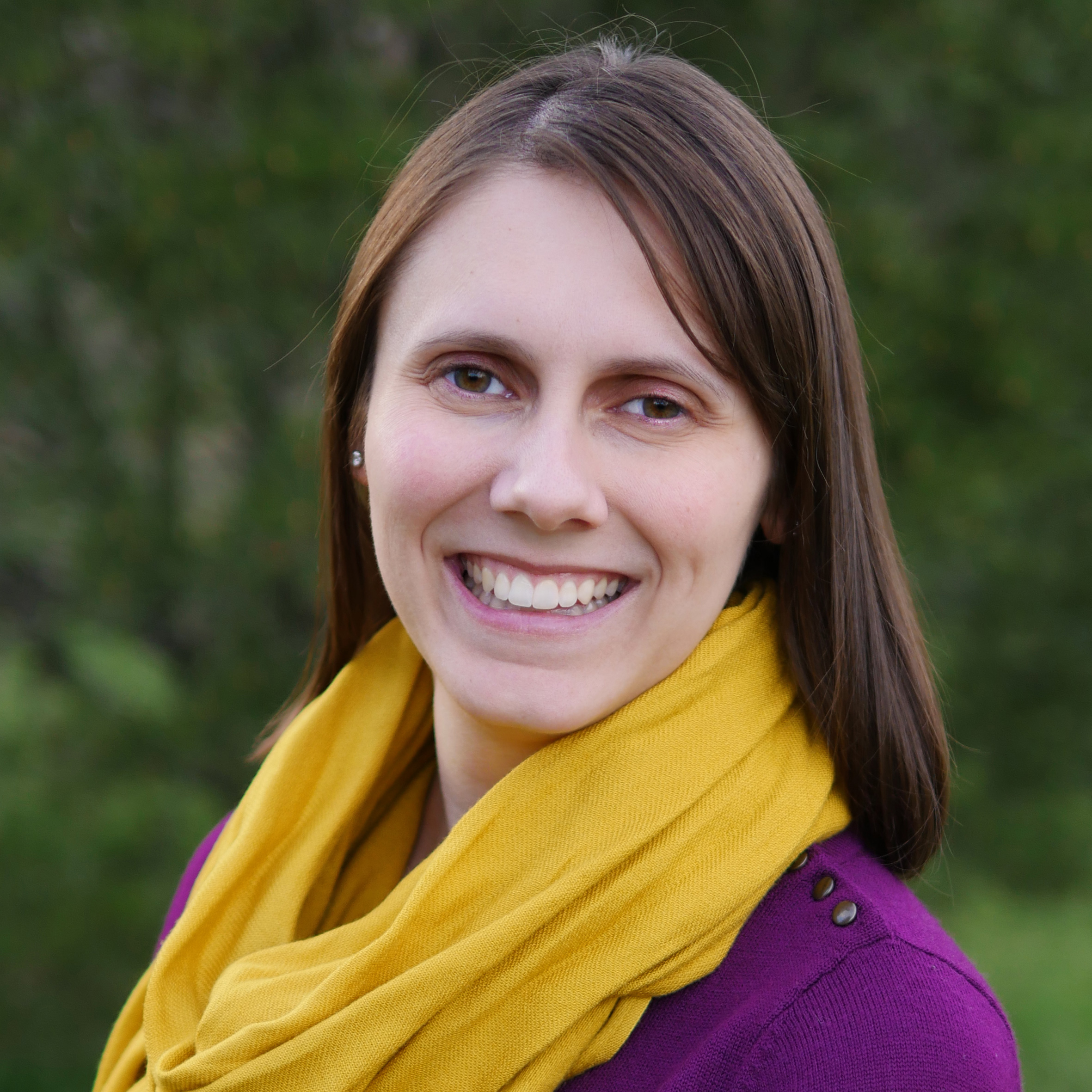 Natalie Umphlett is the regional climatologist at the High Plains Regional Climate Center, which is located within the School of Natural Resources at the University of Nebraska-Lincoln. In this position, she serves as the climate services manager and public liaison for the Center, working closely with stakeholders and partners on climate monitoring for enhanced decision making. She has been with the Center since 2008 and her current research focuses on understanding ways in which climate data and information can be incorporated into municipal planning processes.
Natalie Umphlett is the regional climatologist at the High Plains Regional Climate Center, which is located within the School of Natural Resources at the University of Nebraska-Lincoln. In this position, she serves as the climate services manager and public liaison for the Center, working closely with stakeholders and partners on climate monitoring for enhanced decision making. She has been with the Center since 2008 and her current research focuses on understanding ways in which climate data and information can be incorporated into municipal planning processes.
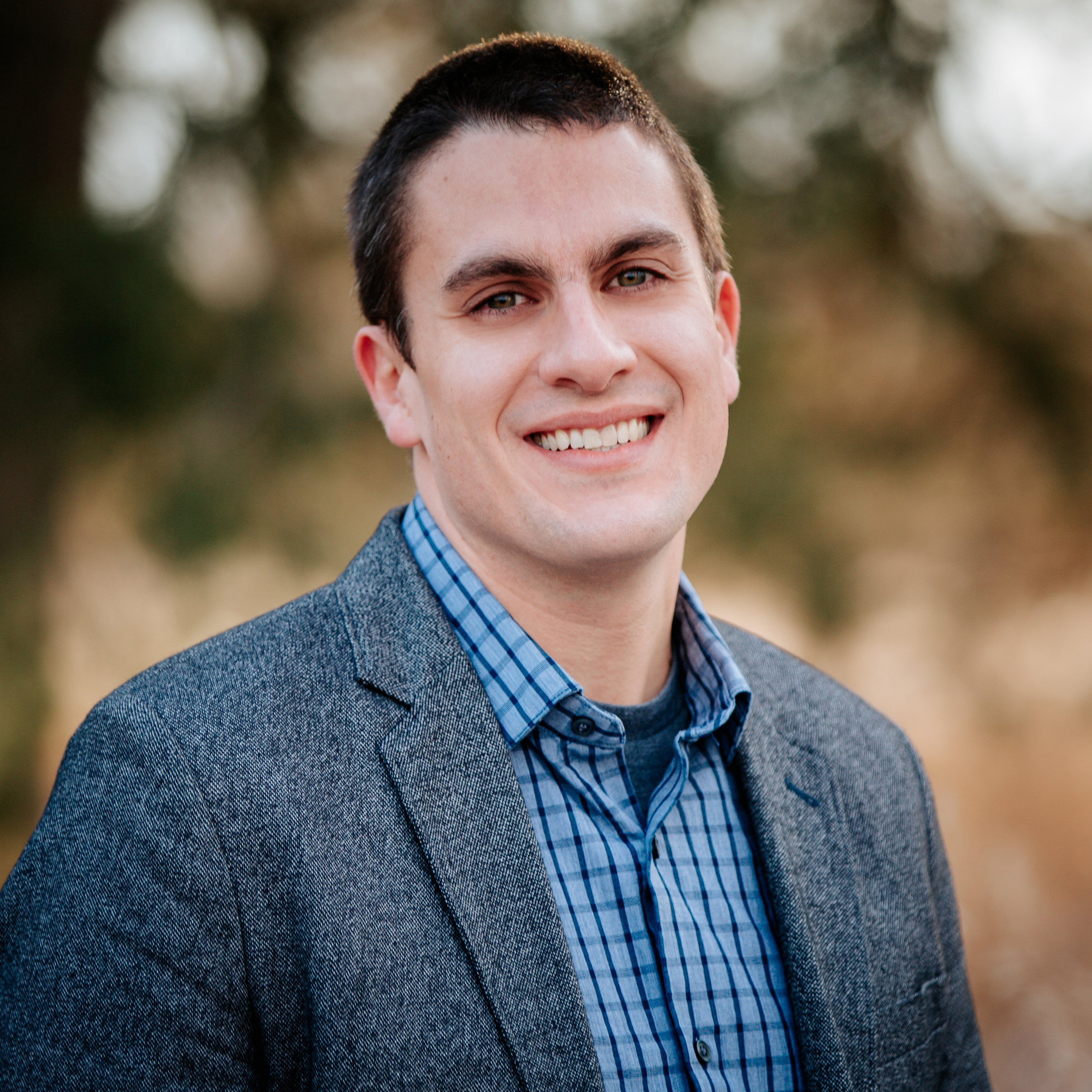 David Vail is an associate professor of History at UNK. He specializes in environmental and agricultural history, science and technology, the Great Plains, and public history. His research has appeared in numerous academic journals such as Kansas History, Endeavour, Middle West Review, Great Plains Quarterly, and Great Plains Research. Vail is the author of two books. The first is Chemical Lands: Pesticides, Aerial Spraying, and Health in North America’s Grasslands since 1945 published by the University of Alabama Press in 2018. His second book, with co-author Debra A. Reid, Interpreting the Environment at Museums and Historic Sites, will be published this month by Rowman and Littlefield. His next book project will look at the history of environmental risk, agricultural science, and food security in the Great Plains.
David Vail is an associate professor of History at UNK. He specializes in environmental and agricultural history, science and technology, the Great Plains, and public history. His research has appeared in numerous academic journals such as Kansas History, Endeavour, Middle West Review, Great Plains Quarterly, and Great Plains Research. Vail is the author of two books. The first is Chemical Lands: Pesticides, Aerial Spraying, and Health in North America’s Grasslands since 1945 published by the University of Alabama Press in 2018. His second book, with co-author Debra A. Reid, Interpreting the Environment at Museums and Historic Sites, will be published this month by Rowman and Littlefield. His next book project will look at the history of environmental risk, agricultural science, and food security in the Great Plains.
Questions? Contact Tarik Abdel-Monem | tarik@unl.edu | 402.472.3147

